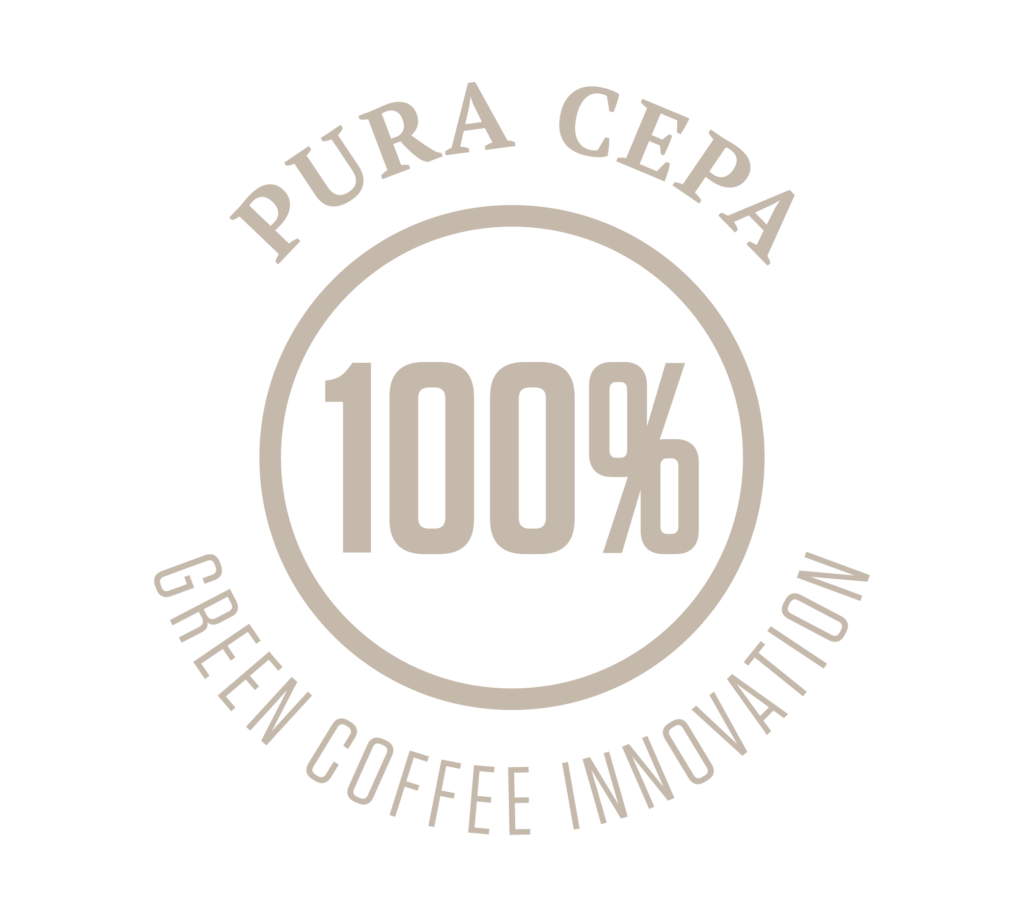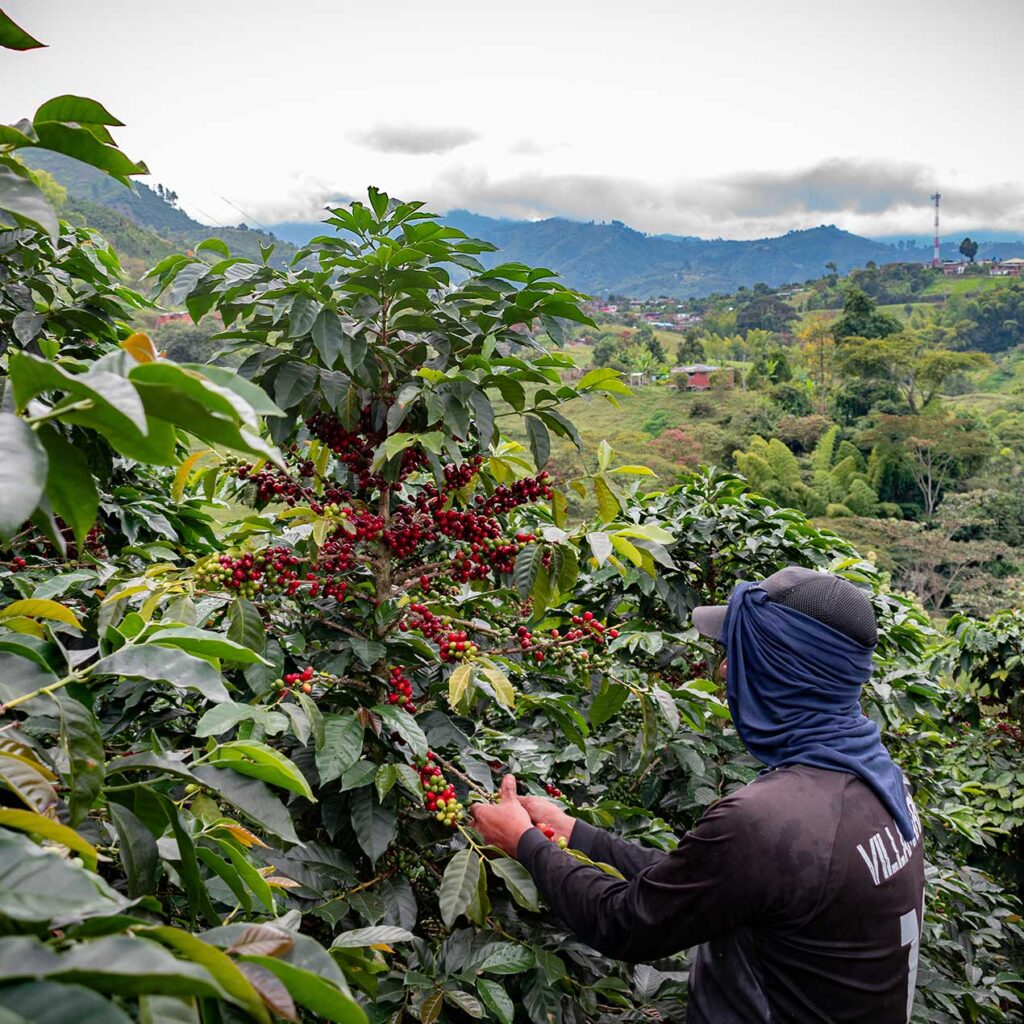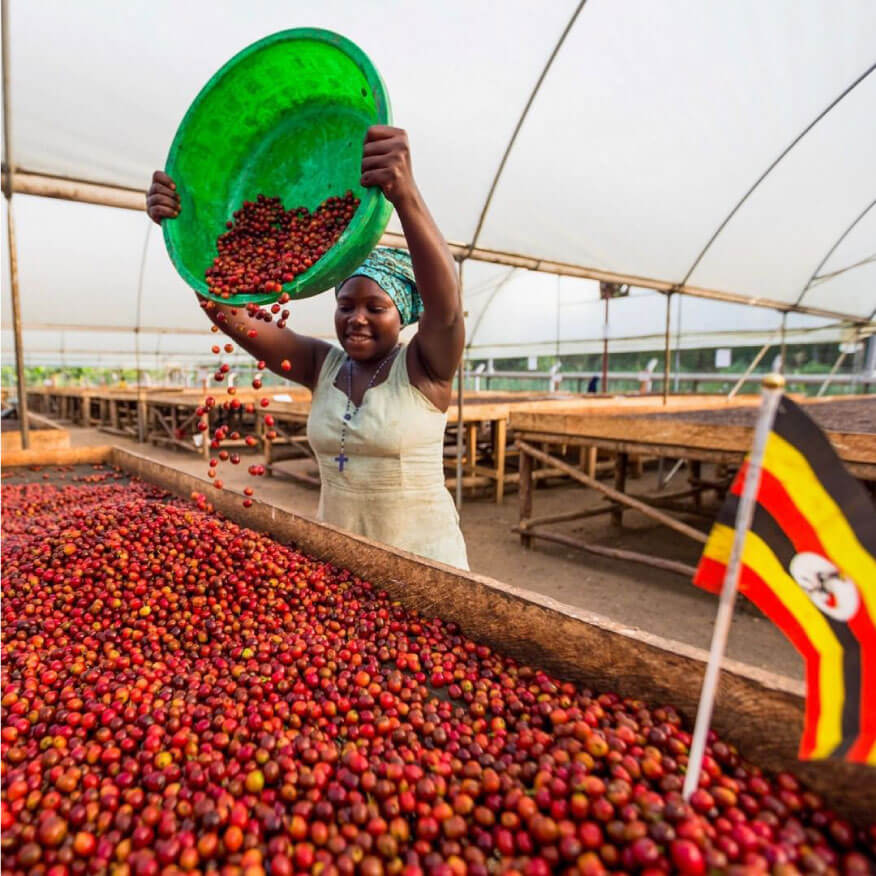
PURA CEPA was conceptualised by Latorre & Dutch as a project focused on innovation and sustainability in the processing of coffee
Piloted in October 2016 in the region of Cañasgordas, Antioquia, Colombia, where we co-own a mill, we have developed this project to revolutionise the current processing techniques available to farmers at Origin and to deliver many benefits for the sustainability of the industry as a whole.
Everything started for the love of coffee and wine and the knowledge gap found between them. One of the biggest inefficiencies in coffee production lies in the fermentation and drying process, where any number of variables of a given processing location may cause a huge impact on the final quality of the product. Previously, it had not been possible to directly relate cause to effect when high rates of variability are noticed in coffee lots, as wild yeast and bacteria react differently and even more adding the impact in quality fungus and mould generation cause during the processing stage.

The scope of this project is based on controlled processing on the microbiological level. Our variables of control include temperature, time, pH, sugar content, bacteria and microorganism (strain of yeast & bacteria). This allows us to identify and select specific strains of beneficial yeast and bacteria to aid the fermentation, monitor their rates of activity and ensure that counterproductive bacteria, fungus and moulds are eliminated from the process.
Innovation doesn’t stop there, we have also created an innovative drying mechanism that has proven to reduce drying time by more than 300% and with no trace of mould or fungus generation, also preserving the molecular structure of coffee intact and keeping the all-important embryo alive. Working in a positive microbiological environment is key to our success, we are fermenting in stainless steel tanks and managing the coffee in a germ-free space to avoid effects of other external bacteria, moulds and fungus.
PURA CEPA has always been a project 100% cemented with science. Hence why, we always have biological engineers, microbiologists, winemakers, Q Graders and mechanical engineers involved in each and every single PURA CEPA washing station around the world, bringing true science into the processing.

In a simple word, this project is directly related to sustainability. To us, true sustainability may only be achieved through resilience, autonomy and mutual respect for all stakeholders. Relationships are our biggest asset and as a result, we are increasingly involved in every step of the way. It is what we know as a multi-level sustainability where we offer higher premiums and education to farmers and communities, higher quality coffees at more competitive prices for customers, organic farming practices, permaculture, floor regeneration and water treatment for the environment to finally achieve REAL full flavoured & socially responsible coffee.
Having applied extensive research to the skilled advice from our team, we initiated trials in October 2016. We have successfully executed and started this project in our washing stations in Colombia, Guatemala, Indonesia and Uganda. With greats results, we have been able to increase the quality of the coffee in at least 4 points and a maximum of 6 points (based on the SCAA cupping protocol). With a vision to have this processing in all the coffee origins around the globe.
As such, our focus is not on producing ever more expensive boutique or micro-lot coffees but to increase the quality of regional or micro-regional coffees that without these methods would continue being traded as a commercial lot, generating no extra welfare for growers or benefits for buyers. However, through PURA CEPA, we are able to pay premiums to growers as we sell a higher quality coffee at a more competitive price.